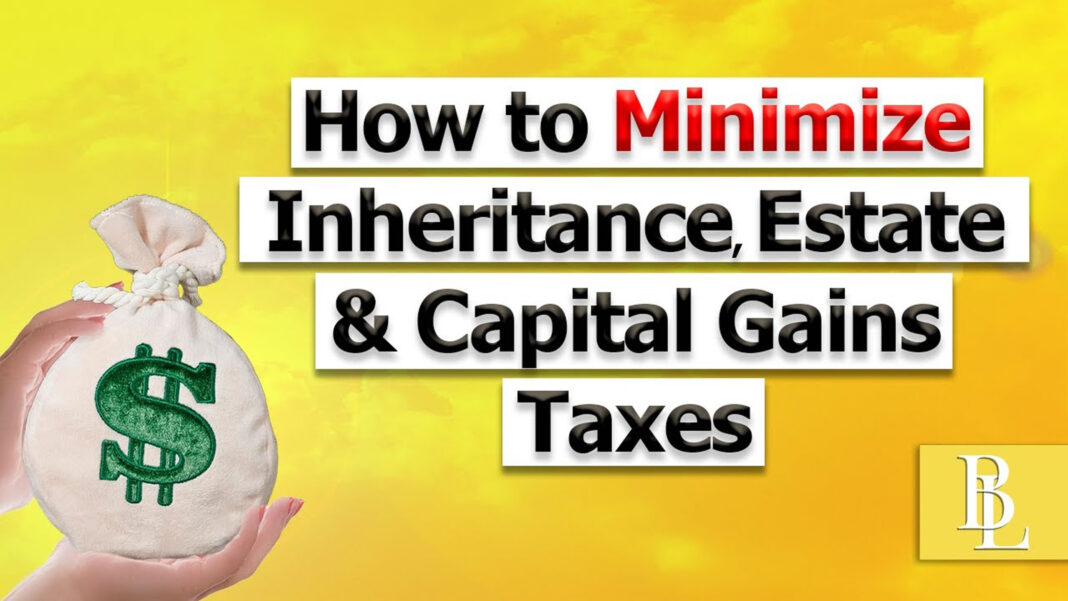Passing along wealth by simply leaving your assets to the next generation has become increasingly difficult, making the need to work with an experienced estate planning attorney essential. Connecticut imposes a 12 percent flat “death tax,” which it calls an “estate tax.” Couple the state’s slice with the fact the federal government wants a big cut of large estates, and your heirs may not get the financial allowance they deserve.
While death and taxes may be unavoidable, we can help minimize the latter. At Brodeur Law, we work closely with Connecticut families to organize their assets in a way that reduces their tax liability. These are ways we can help you leave friends and family members the full, fair amount.
How Do CT and Federal Estate Taxes Work?
The federal government imposes a death tax on estates that exceed $13.61 million. Unless properly structured, beneficiaries could suffer a hit of 18% – 40% on anything over that amount. If your estate exceeds that figure by up to $10,000, 18% could end up in government coffers. The percentage increases incrementally, maxing out at a 40% tax on $1 million or more.
Connecticut currently uses the same $13.61 million estate tax figure as the federal government. If the assets you plan to leave to loved ones exceed that threshold, a flat tax of 12% could come into play. Needless to say, no one wants to see their inheritance diminished unnecessarily! That’s why an estate planning attorney helps people utilize exemptions and establish trusts.
Ways to Minimize Estate and Inheritance Taxation
It’s important to keep in mind that estate taxes and inheritance taxes are not necessarily the same things. Although people tend to use the terms interchangeably, estate taxes are levied on assets loved ones leave to their heirs. When heirs receive money, real estate, and other assets, their fair market value may increase a beneficiary’s income tax liability. Fortunately, the federal government provides a variety of exemptions and commonsense ways to pass on financial security.
Gift Transfers
Citizens are entitled to make monetary and asset gifts that are not subject to federal taxation. The 2024 amount matches the $13.61 million figure established in the federal tax code. That means a single tax filer can transfer up to $13.61 million without incurring an estate tax. Couples can gift double that amount if properly orchestrated and the spouse is a U.S. citizen.
Marital Tax Deduction
The federal tax code has a provision that allows unlimited marital deductions. That means you can transfer virtually anything of value without incurring a tax. Spouses have the option of conducting marital transactions at any time during their life. It’s also possible to establish a marital transfer after one of the parties passes. Marital asset transfers rank among the best ways to ensure a spouse enjoys the assets of their marriage.
Charitable Donations
If your total estate exceeds $13.61 million in 2024, charitable donations can help reduce that number by funding non-profit organizations that do good works. The federal government doesn’t limit giving to a certified 501(c)3. When crafting your Last Will and Testament or a trust, a scheduled amount can be disbursed to favorite charities, bringing the total estate value down to a specified level. Sit down with your estate planning attorney and discuss how much you’d like to see go to cancer research, religious institutions, Habitat for Humanity, the American Red Cross, and others versus the IRS.
Trusts Reduce Inheritance Taxes
Assets placed in a trust are generally not considered personal property. The resources, real estate holdings, stocks, and other valuables become the trust’s property. When someone dies, the trustee can dole out the money on a planned basis to prevent the inheritance from driving up a beneficiary’s tax bracket and liability. Creating a trust today helps the people you leave behind to enjoy the fruits of your labor.
Consult with a Connecticut Estate Planning Attorney Today
The current tax exemptions and estate thresholds could change dramatically at the end of 2025. Many are based on the 2017 Tax Cuts and Jobs Act, which may expire unless Congress intervenes. If the Tax Cuts and Jobs Act sunsets, estate taxes will likely be levied on estates as low as $7 million. If you would like to schedule an estate planning consultation, contact Brodeur Law at our Mystic or Middletown, CT, office today. Let’s get the process started.
Sources:
https://www.ml.com/articles/estate-gift-tax-exemption-sunset.html#:~:text=As%20a%20result%2C%20for%202024,along%20substantial%20gifts%20tax%2Dfree.
https://www.investopedia.com/terms/u/unlimited-marital-deduction.asp#:~:text=The%20unlimited%20marital%20deduction%20allows,gift%20tax%2C%20and%20estate%20tax
https://www.irs.gov/businesses/small-businesses-self-employed/estate-tax
https://portal.ct.gov/drs/individuals/individual-income-tax-portal/estate-and-gift-taxes/tax-information#EstateTXOverview















